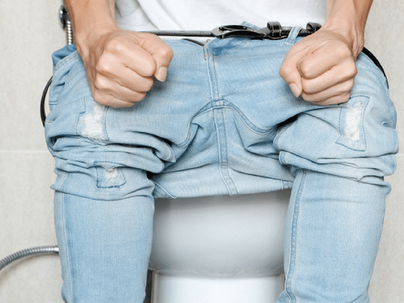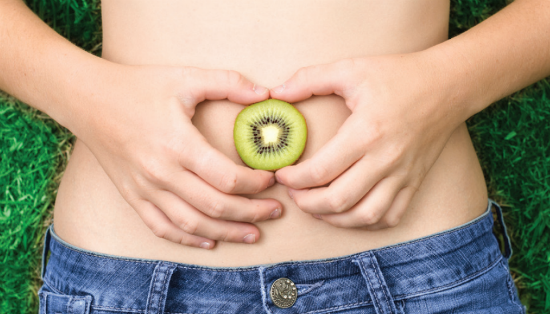 Lifestyle & Diet Routine Greatly Affect Bowel Movement Lifestyle & Diet Routine Greatly Affect Bowel Movement Waking up in the morning is a tough job for many and even after getting up, completing the morning chores and getting ready for work is a tiresome routine for some! Brushing teeth, having a bath and dressing up are a regular part of your morning activity but passing stool doesn’t line up as a routine in each of our lives! Though a healthy body routine includes this, not all of us are habituated to smooth bowel movements every day in our lives. Gastrointestinal issues including constipation remain a common condition in adults and children residing in every corner of the world. This not only disrupts morning routine and affects time management but also has a greater impact on the quality of life and well-being of the individual. People avoid using buses, freak out when they are travelling, eating habits change according to bowel movement and general well-being too is dramatically affected. Constipation is pain or difficulty experienced while passing hardened stools or when there is three days in between bowel movements. Every individual faces this problem sometime in life and even healthy individuals become victims despite having no physical or physiological problems. This condition affects almost up to 25% of the population at any given time and is more common in women than men due to factors such as diet, lifestyle, old age, bowel habits and use of medications. Presently, people with constipation problems are recommended lifestyle and dietary modifications apart from other interventions such as stool softeners, osmotic laxatives and stimulant laxatives. But these laxatives sometimes can pave way for unnecessary side effects and it would be preferable to use natural methods to alleviate inappropriate bowel movement. A diet-based change is always the best approach as it is a long-term solution that has no side effects. It is suggested to eat a well-balanced meal that includes bran, whole-wheat grain, plenty of fresh fruits and vegetables, drinking fluids and staying active as a preventive as well as treatment protocol for constipation problems. Basically, it’s a food-based approach that contains aplenty water that’s prescribed as a treatment against constipation. This includes the exotic kiwifruit that has captured the attention of individuals worldwide with its sour-sweet taste and consistency. Though priced a tad higher than many regular fruits kiwis are an excellent source of vitamins and minerals, dietary fiber and polyphenols. Being used as a traditional Chinese medicine the fresh kiwis have been proclaimed to increase laxation in the elderly population due to its high fiber content. Clinical trials show that consuming the whole fruit helps enhance laxation in healthy individuals and also in those individuals with irritable bowel syndrome (IBS) and constipation. Researchers confer these benefits to the presence of soluble and insoluble fiber, polyphenols and the enzyme actinidin present in the fruit. Effect of Kiwifruit-derived Ingredients on Bowel Movement The kiwifruit has a strong Asian origin but are also mostly grown in New Zealand. Actazin and Gold are two powdered ingredients derived from whole New Zealand green (Actinidia deliciosa) and gold (Actinidia chinensis). In both of the varieties, the skin and seeds are removed and the flesh is cold processed for use in supplements. A group of researchers hypothesized that fleshy part in both these varieties played integral roles in improving stool frequency, stool form and gastrointestinal comfort in healthy as well as constipated individuals. The research team selected participants to prove the hypothesis right using several criteria such as age between 18 and 60 years, BMI between 19 and 30 kg/m2, had gastrointestinal symptoms, were vegans or followed a high-fiber diet, had surgery for weight loss, were pregnant or were allergic/sensitive to kiwifruit. Blood samples of the participants were collected at the beginning and end of the study. It was a double-blind, placebo-controlled study which had two groups of participants: healthy participants with no symptoms of constipation and those with functional constipation who met the Rome III criteria for C3 functional constipation. The criteria includes 2 or more of the following: lumpy or hard stools at least 25% of the time, straining at least 25% of the time while passing stools, a sensation of anorectal obstruction or blockage at least 25% of the defecation time, 3 or less than 3 defecations per week, loose stools that rarely occur without using laxatives and insufficient criteria for irritable bowel syndrome. There was a 14-day washout period before the study and all participants consumed 4 dietary interventions each for 28 days with a 14-day washout period between interventions. The interventions included were placebo, Actazin low (Actazin-L) dose (600 mg/day), Actazin high (Actazin-H) dose (2400 mg/day) and Gold (2400 mg/day) which were given in 4*600 mg capsules along with a glass of water. While there were no additional ingredients in Gold powder the Actazin powder contained silica and microcrystalline cellulose. Each of the participants completed a 3-day food dairy at the start and end of the trial, noted down daily bowel movements and well-being parameters. There were 19 participants in the healthy cohort group whose average age was 38 years and BMI 23. There were 9 participants in the functionally constipated cohort whose average age was 44 years and BMI was 25. Results showed that:
Effect of Kivia Powder on Gut Health Kiwifruit has non-digestible oligosaccharides and insoluble fiber that act as a prebiotic by being fermented to small chain fatty acids of butyrate (increases gut motility), acetate and propionate. This combination in the kiwifruit is terrific as both the oligosaccharide and the fiber pass unaltered from the small intestine to the colon acting both as a prebiotic (growth of gut microflora) and as a fiber (to bulk the stool). Kivia powder derived from kiwis is a freeze-dried powder containing Zyactinase, the enzyme actinidin (enhances gastric protein digestion), plant polyphenols, dietary fiber, carbohydrates and oligosaccharides. The study below deals with the benefits of the Kivia powder derived from kiwifruit. Kivia powder contained extracts of kiwifruit prepared by a freeze-drying technique without any solvents or extraction. The placebo contained inactive components such as lemon powder, vital spirulina, citric acid, fructose, sucralose and tropical flavors. The Kivia powder was packed as a 5.5g dose per sachet but both, the placebo and the intervention powder were packed in identical sachets and the participants received a daily dose of one sachet dissolved in cold water along with breakfast. The study included participants aged between 18 and 65 years with a BMI between 20 and 35. All the participants followed the following criteria to be labeled as suffering from occasional constipation: three or fewer defecations per week, straining to pass stools at least 25% of the time, lumpy or hard stools at least 25% times, a feeling of incomplete evacuation at least 25% times, having a sensation of anorectal obstruction or blockage at least 25% of the time and manual maneuvers to facilitate at least 25% of defecations. There were several other exclusion criteria and at the end there were 87 men and women consuming the study product daily for four weeks. Primary endpoint of the study was bowel movement frequency, a parameter used to assess how often an individual has his/her bowel movement; secondary endpoint was to determine the efficiency of the Kivia powder in comparison to the placebo on gut health. Endpoints included stool form (Bristol Stool Scale), bowel urgency (yes/no), abdominal bloating (0 = none, 1 = mild, 2 = moderate, 3 = intense, 4 = severe), abdominal discomfort or pain (0 = none, 1 = mild, 2 = moderate, 3 = intense, 4 = severe), satisfaction with bowel habits (0 = a great deal satisfied, 1 = a good deal satisfied, 2 = moderately satisfied, 3 = hardly satisfied, 4 = not satisfied at all), flatulence (0 = none, 1 = mild, 2 = moderate, 3 = intense, 4 = severe), and burping (0 = none, 1 = mild, 2 = moderate, 3 = intense, 4 = severe). The Bristol Stool Scale is used to classify the form of feces into categories (type 1 = separate hard lumps, like nuts, type 2 = sausage-shaped but lumpy, type 3 = like a sausage with cracks on surface, type 4 = like a sausage or snake, smooth and soft, type 5 = soft blobs with clear-cut edges and passed easily, type 6 = fluffy pieces with ragged edges, a mushy stool, type 7 = watery, no solid pieces, entirely liquid). Tertiary endpoint was to determine the efficiency of the Kivia powder compared to the placebo and quaternary endpoint included determining the safety of the Kivia powder compared to the placebo. There were 87 participants (44 in placebo and 43 in product) but there were 4 withdrawals in the active group and 1 in the placebo group resulting in 43 participants in the placebo and 39 in the active group finally. Results showed that: Primary Endpoint: Participants in the active group witnessed increase in number of spontaneous bowel movements (SBM) every week of the study compared to baseline. Changes in SBM from baseline to week 3 and from baseline to week 4 were significantly higher in the treatment group compared to the control group. There was a significant increase in the number of complete spontaneous bowel movements (CSBM) observed every week compared to baseline. Secondary Endpoint: There was significant decrease in abdominal bloating at the end of every week compared to baseline, significant and nearly significant decrease in abdominal discomfort at the end of week 2 and 4 compared to baseline, abdominal pain or discomfort was lower in the treatment group compared to placebo at week 1 and 3 and significant increase in satisfaction with bowel habits at every week of the study compared to baseline. No difference was observed between the two groups in terms of abdominal bloating and satisfaction in bowel habits. Flatulence was lower for the active group compared to placebo at week 2 and 3. There was a reduction in stool forms 1 and 2 and an increase in stool forms 3, 4 and 5 in both groups. By week 2, there was a significant increase in type 4 bowel movement in the Kivia powder group compared to placebo and by week 3 (follow-up phase), there was an increase in type 5 bowel movement in the treatment group compared to placebo. A clinical trial on Zyactinase was conducted on 58 participants with 30 of them belonging to the placebo group and 28 belonging to the experimental group. The Rome III criteria system was once again used here to measure abdominal discomfort of the participants and from 7 days (run-in period) before the study the participants were prevented from using any dietary supplement or medicine to relieve constipation. After this, there was a 7-day dosing period where each of the participants were given 6 capsules a day either of the placebo or the fruit extract. Again, during the next 7 days they were not allowed to eat anything (supplements or pills) that would facilitate easy passage of stools. Results showed that during the dosing period there was a significant difference in the number of bowel movements per week, though not quite significant there was a slight increase in the frequency of bowel movements per week in the placebo group and during the follow-up phase there still existed significant difference between the two groups. The researchers expressed 0 as an ideal fecal score. The baseline fecal score was 1.9, during the dosing period there was a softening of the stool experienced in both the groups with the active group expressing even potent results. During the follow-up period, fecal score remained low for the active group but for the placebo group the scores increased thereby showing that the fecal stools were also becoming harder again. Abdominal discomfort scores improved drastically for the active group during the dosing and follow-up phase and consumption of 2160 mg/day of kiwi extract returned stools to near normal within the seven-day dosing period and the effect remained intact during the follow-up period. The trial thus shows that the green kiwifruit extract helped inducing normal bowel movements, relieved constipation and symptoms of IBS with no adverse effects. References Kiwifruit-derived supplements increase stool frequency in healthy adults: https://www.sciencedirect.com/science/article/pii/S0271531715000718 Effects of Kivia Powder on Gut Health in Patients with Occasional Constipation: https://link.springer.com/article/10.1186/1475-2891-12-78 Efficacy of Actinidin-containing Kiwifruit Extract Zyactinase on Constipation: https://www.ncbi.nlm.nih.gov/pubmed/29737803 Encapsulated Green Kiwifruit Extract: A Randomized Control Trial Investigating Alleviation of Constipation in Otherwise Healthy Adults: https://pdfs.semanticscholar.org/40a6/6d4a2f551b5835ecea9d00e79db9cec49414.pdf Comments are closed.
|
AVOID FRAUD. EAT SMART+91 7846 800 800
|
- Home
- Written Testimonials
- Consult
- Clinics
- Blogs
-
Diet & Nutrition
- Diabetes Reversal
- IVF IUI not needed for PCOS PCOD Infertility
-
Medical Nutrition
>
-
Disease & Conditions
>
- Infertility | PCOS
- Diabetes Mellitus
- Cholesterol
- Hypothyroid
- Kidney Problems
- Hypertension
- Cardiovascular Diseases
- Liver Diseases
- Gastro intestinal disorder
- Cancer
- Metabolic Disorders
- Orthopedic Disorders
- Eating Disorders
- Dietary Recall
- Weight Record Filled By Clients
- Online Payment Transaction Details
- Online Clients Weight Check Form
- Our Program Package Service Charges
- Weight Record 2017 Clients
- Measurements sent by Clients
- Terms & Conditions Of Payment
- Thanks. Your Form is Submitted
- Video Testimonials
- Lifestyle & Wellness
- Lifestyle & Wellness Blog
- Allergy & Intolerance
- Weight Loss / Gain
- Weight Loss / Slimming Blog
-
Disease & Conditions
>
- Life Cycle Nutrition >
- Sports Nutrition >
- Integrity in Nutrition
- Knowledge Centre
© COPYRIGHT 2022. ALL RIGHTS RESERVED. FRST HEALTHCARE PVT LTD.
Dr. Nafeesa Imteyaz of First Eat Right clinic, is the Best Dietitian Nutritionist in Bangalore. Best Dietitian Nutritionist in Pune. Best Dietitian Nutritionist in Hyderabad. Best Dietitian Nutritionist in Chennai. Best Dietitian Nutritionist in Mumbai. Best Dietitian Nutritionist in Delhi. Best Dietitian Nutritionist in Kolkata.



